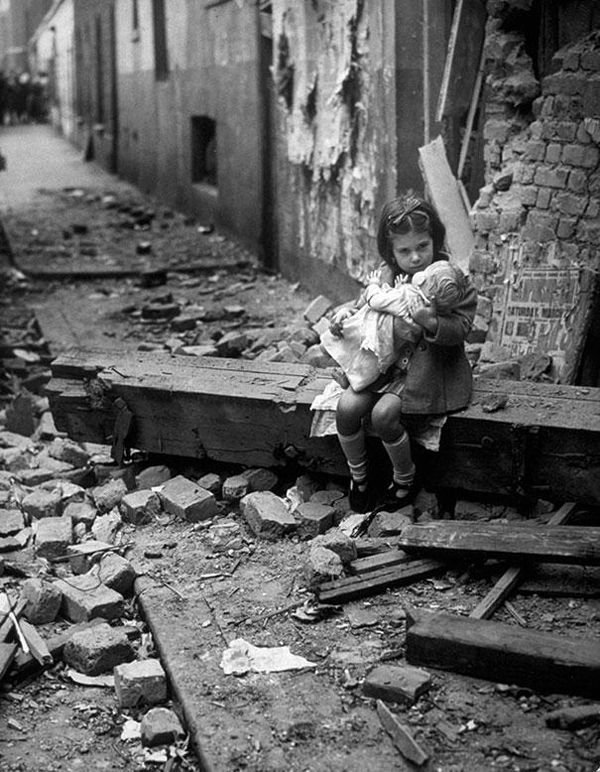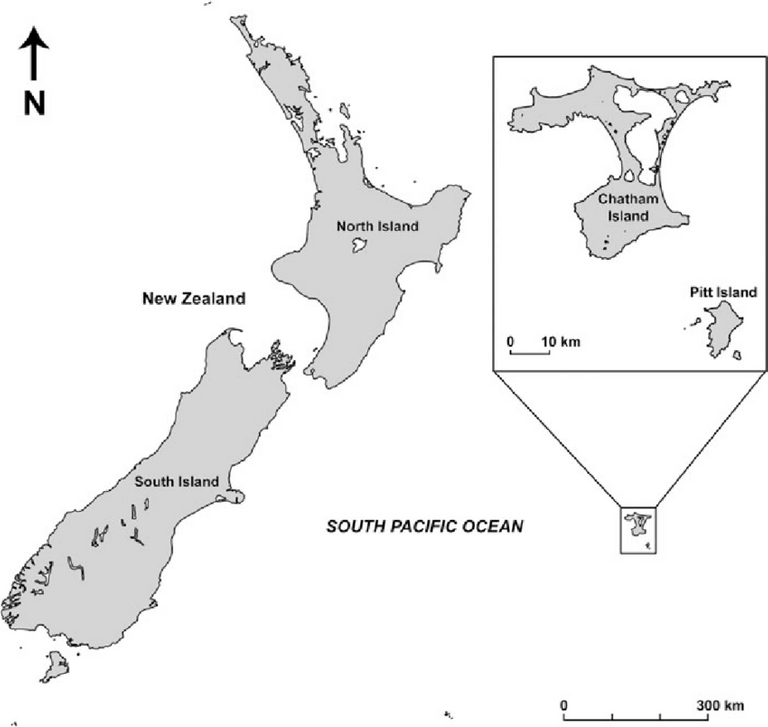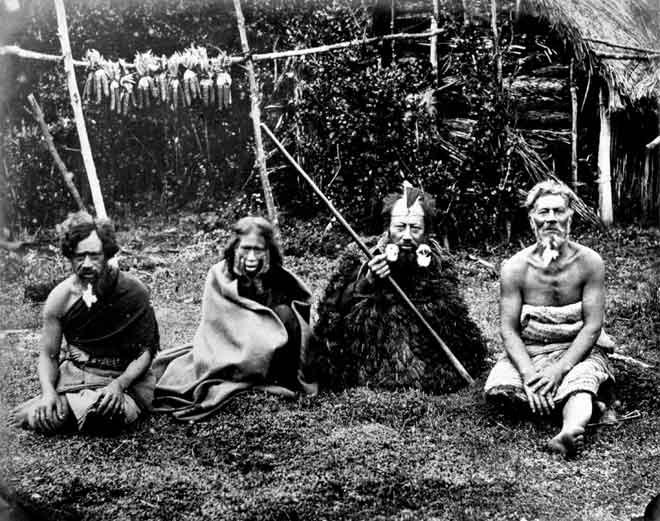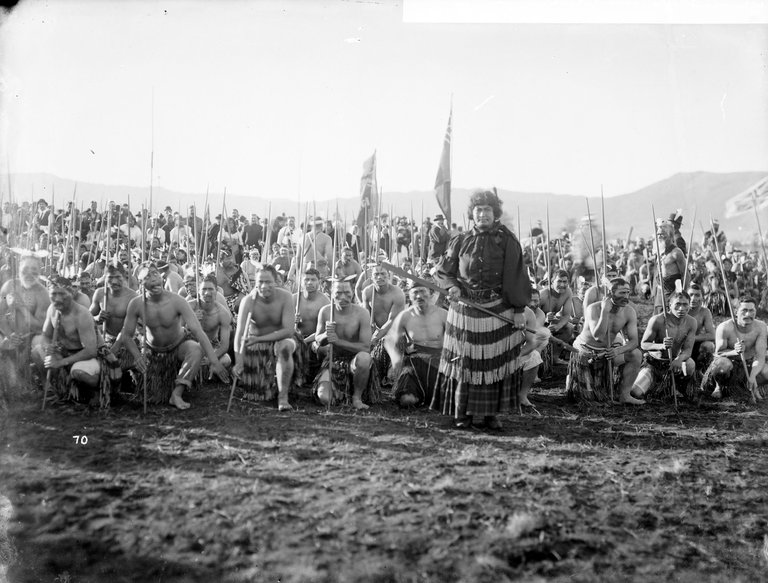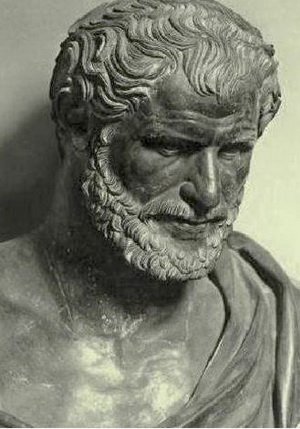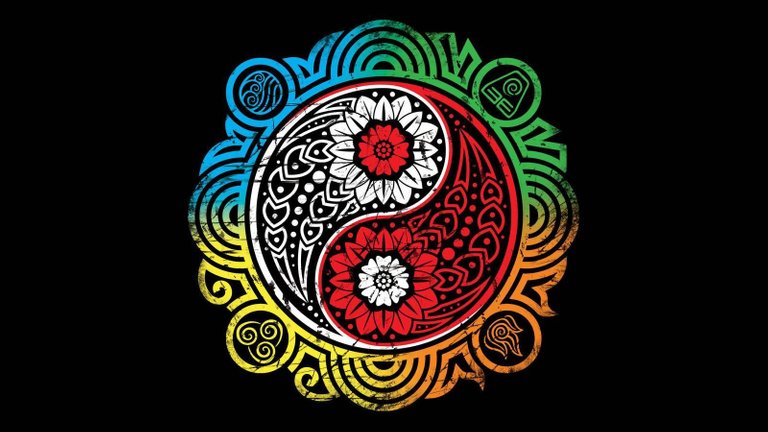Is war a human physical condition?
At this stage, there are many wars, hostilities and violence around the world! Between different nations, followers of religions, social groups and even fans of sports clubs. Certainly some of them shock us and we examine them with greater sensitivity or sympathy, while others we consider almost normal. Have you ever wondered if this stems from our pre-existing stereotypes? Are there any more warlike tribes than others, because of their special genetic characteristics? Are some religions or societies more "bloodthirsty" than others? Do some ideologies inevitably lead to war?

In simpler terms, we should first try to answer to the question: Why do people make war? After this we will lead to the answers to all the previous questions
Why do people make war?
On an experimental level,we could answer on it, if we used some groups of people, giving them different conditions, to see if they would be led to war. This of course is morally unacceptable and practically unfeasible
Fortunately for us life, nature or universe ( choose freely ),which does not care at all to follow rules of ethics, did a war experiment with real people, which lasted about 800 years.
This experiment started in 1,000 AD in the Pacific Ocean.
Today New Zealand, were first colonized in 1,000 AD. Some Polynesians were the first people to set foot in this fertile area. Their descendants were named Maori. Iam sure for the most of you, this is not the first you read something about Maori. For sure you have seen the national traditional dance of New Zealand called Haka, which belongs to them. Let's also get to know the Moriori, a not so well known Maori subgroup.
A few years later some Maori were accidentally found on the Chatham Islands, 800 km east of the original metropolis of them. The people of Chatham were named Moriori.
Maori and Moriori
The two societies never came in contact again, at such a point, that Moriori forgot the existence of their metropolis, and the Maori knew nothing about the Chatham Islands. They evolved totally separately, for more than 500 years.
The experiment has already started and the data are as follows:
- we have the same race
- with the same genetic characteristics, - the same Polynesian religion
- the same history (oral since they did not have a written word)
- and the same folk tradition.
What is different?
- environmental conditions
- and environmental space.
Will the two societies, the Maori and the Moriori, evolve differently? And what will happen when the two societies meet again?
The northern (and warmest) island of New Zealand was ideal for intensive farming. And where there is agriculture the population grows (see older text Lost Paradise)
The Maori have grown exponentially in the next 500 years, reaching an huge number of 100,000 people. The surplus of food allowed the creation of a political organization - and parasites drones. They had leaders, priests and warriors, who produced nothing but wars between rival factions.
The surplus of food also resulted in the specialization of some gunsmiths, who made better tools and weapons, as well as artists, who made temples and sculptures.
The Maori created civilization, just as we mean civilization - and where man is the fuel. A society of inequality.
As warriors, since they were constantly at war, they became strong. Even the British Empire, with its superior armament, found it difficult to subdue them (although it eventually did).
A rare photograph of the Moriori from that time
The Moriori, on the other hand, who lived on the small Chatham Islands, where the climate is sub-arctic. Large crops could not be found in these places. In addition, Chatham is far from any other island, so they were under a kind of isolation and security. The Moriori, descendants of farmers and seafarers, were forced to become predators-feeders.
Without food surpluses they could not feed skilled craftsmen, artists, leaders, warriors. Everyone had to find their food, even the leader.
The Moriori never were over 2,000 people. Since there were no accessible islands to colonize, they had to stay and learn to survive-coexist. They restricted the population in various ways (one of which was to castrate some male infants), while they had been renouncing war. The result was a small non-warlike population, with simple technology and weapons and no organization or strong leadership.
We have seen it before, it is historically verified. All hunter-gatherer societies were egalitarian. There were no inequalities because there was no food surplus.
After the agrarian revolution (around 10,000 BC), where there was now a surplus of food, as well as the possibility of storage-redistribution, the first cities, kingdoms, empires (etc.) were created in Eurasia.
But only in this way was created what we define as culture. That is, great monuments of art, technology and weapons, organized armies, religions with priesthood, bureaucracy, laws and judges, kings, officials (and philosophers and scientists). There must be an accumulation of goods in order for there to be inequality, in order for there to be specialization, in order for the atomic bomb (and the your super mobile phone) to be made.
And this is clearly evidenced by what is happening now, in twenty-first century, where the production of goods is greater than ever in human history, and the scandalous inequalities . Thinks for a momment,Jeff Bezos, one of the richest men in the world now, brings out in one day what one of his employees would bring out in 1,000,000 years.
But Moriori society did not create "civilization" (neither philosophers nor smartphones) and when they faced the Maori again, they could not resist.
In 1835 an Australian seal-hunting ship rediscovered the isolated Chatham Islands. Next days,about 900 people of two mainland Māori tribes sailed on a British ship to Rēkohu, the newcomers were welcomed and fed by Moriori in accordance with tikane Moriori (Moriori custom). Some Moriori wanted to resist the invaders, but the elders, urged the people to obey Nunuku’s law of peace ( Nunuku-Whenua was Moriori old chief, who introduced to his people around the 16th century a pacifist philosophy and lifestyle).
Upon returning to their villages Moriori, were attacked and many were killed. Māori accounts put the number of Moriori killed in 1835–36 at about 300, or about one-sixth of the population. Those Moriori who survived the invasion were enslaved and forced to do manual labour.
Beside the fact the Moriori could resist they chose to follow their tradition of resolving their disputes peacefully. They decided in an assembly not to fight, but to offer peace, friendship and distribution of resources.
(1901) photo of the Maori, after the Haka war dance and their final domination over the Moriori
In 1901, the Moriori population on Rēkohu had collapsed from a pre-contact population of about 2,000 to only 31.
In conclusion
It sounds scary, but it's so common in human history. The strong, those who have more (food, weapons, technology, germs) prevail over the weak.
People do not make war because it is characteristic of a race or religion or ethnicity or gender. They do it because they can win (or think they can). And because they want more.
Religions, ideologies, economic theories simply rationalize man's irrational greed, but they are certainly not what create it.
"...πόλεμος πάντων μὲν πατήρ ἐστι, πάντων δὲ βασιλεύς, καὶ τοὺς μὲν θεοὺς ἔδειξε τοὺς δὲ ἀνθρώπους, τοὺς μὲν δούλους ἐποίησε τοὺς δὲ ἐλευθέρους "
War is father of all, and king of all. He renders some gods, others men; he makes some slaves, others free
Heraclitus
War, that is, the conflict and the alternation of different or opposite elements are everywhere! Of course in human life and history. If we consider that many things or services that we enjoy are the products of a war rivalry, even the internet, that we use now, perhaps this human greed is the blessing and the curse of humanity!
When I think of the words of Heraclitus, Yin and Yang always come to my mind. Perfectly visualizes the concentrated wisdom!
My post based basically on Jared Diamond's book " Guns, Germs, and Steel: The Fates of Human Societies"
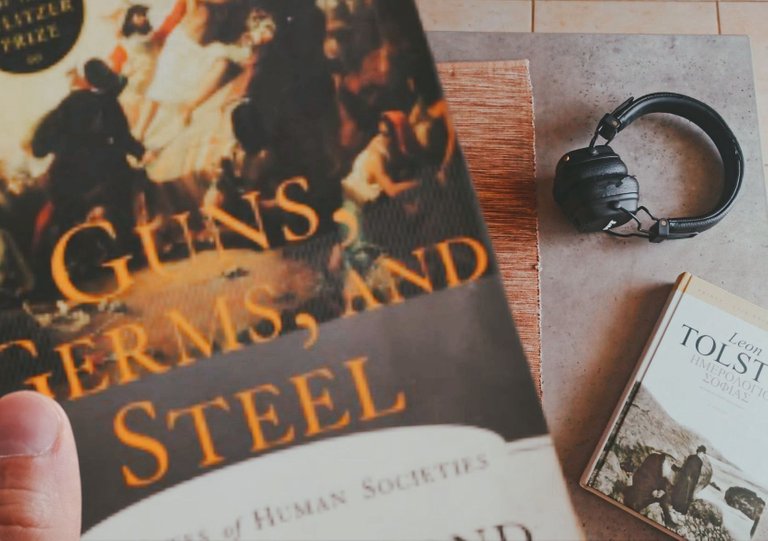
Is a book I have not yet completed, but as soon as I got to the point where it examines the story of Maori and Moriori, I could not wait to share it with you! I highly recommend the book!
My post also based and on the below sites, some of the were the reason I discovered this particular book and in some spots i used information and parts from them:
https://sanejoker.info/2017/08/war-and-civilazation.html
https://www.theguardian.com/world/2021/nov/26/long-fight-for-justice-ends-as-new-zealand-treaty-recognises-moriori-people
